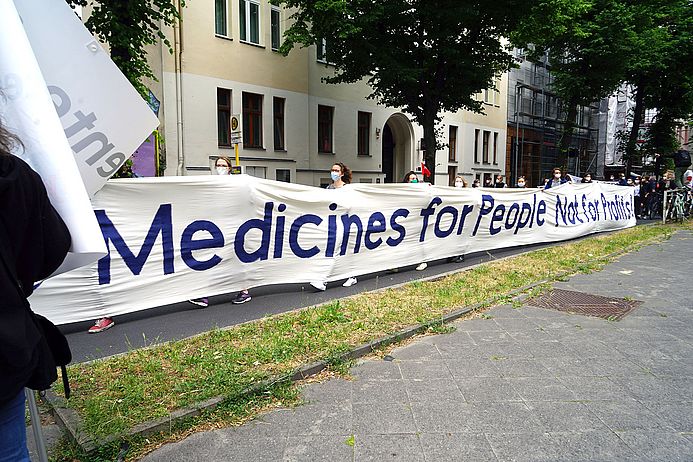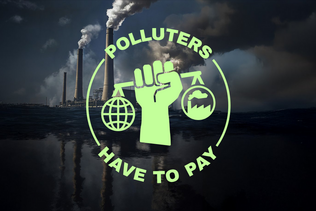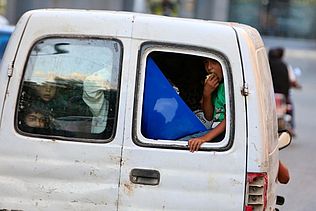In August, following the massive outbreak of the Mpox virus in several African countries, the World Health Organisation (WHO) called out the highest level of alert - a "public health emergency of international magnitude". The term "international" indicates that the global community is called upon to act. The Mpox virus is a zoonosis, a viral disease transmitted from animals to humans, a new subline of which is spreading faster in the Democratic Republic of the Congo and causing more severe cases of the disease than the variant that was already going around globally in 2022. Typical symptoms include high fever and painful pustules, and mortality is particularly high among children. Transmission from person to person occurs through close physical contact. It is currently being registered above all in places where people are poor, living in cramped conditions and are weakened by other poverty-related diseases - such as in refugee camps in the war-torn Congo. People in Kenya, Uganda, Rwanda and Burundi have also already taken ill.
In response to the Covid-19 pandemic, a pandemic treaty is currently being negotiated at the WHO and is surrounded by a certain amount of controversy. The idea is great: a binding treaty could set normative standards channelling more investment into the preparation and monitoring of infectious diseases worldwide. And it could finally overcome the injustice afflicting access to vaccines that is blatantly dividing the world: Even in the corona pandemic, they were available first, and then in sufficient quantities, wherever they could be paid for, but not where they were most urgently needed. The treaty could also put an end to "vaccine diplomacy", in which rich countries donate surplus doses to countries (preferably strategically important ones) in a gesture of charity.
If there were a binding tool under international law that provided clear recommendations for the suspension of patent protection and mutual support in the event of a global crisis, pandemics could be better contained and more global justice brought about in the interests of the world. But this is not the case. Negotiations are faltering. The main point of contention is the question of how binding an agreement can - or must - be. Even during the coronavirus crisis, Germany was one of the countries that acted to make sure that vaccine patents were not released, against the will of the majority of countries and the protests of international civil society. Even now, Germany is one of the biggest obstructionists.
Dian Maria Blandina and Lauren Paremoer from the medico partner network People's Health Movement refer to a "deep chasm between the Global North's focus on health security and industrial interests on the one hand and the Global South's push for equitable access to health products and increased local production on the other". Vaccination with the only licensed vaccine costs USD 100 - unaffordable for crisis- and war-torn countries. At the same time, the value of shares of the - sole - manufacturer Bavarian Nordic from Denmark have surged by more than 40 per cent as a result of the current outbreak.
The EU now wants to provide the countries affected with vaccines against the new variant of the Mpox virus as a donation. However, the 215,000 doses promised only account for around one-tenth of what is needed in African countries alone by the end of the year, according to the African Union's Centre for Disease Control. Philanthropy cannot eliminate the fundamental gap between the monopolistic model of the pharmaceutical industry with its strict patent system and the need for local production.
As was the case during the coronavirus pandemic, the countries of the Global South are being denied the ability to produce the vaccines themselves in a neo-colonial manner. "Local African production of the vaccine is not feasible from a technological point of view," according to Bavarian Nordic. A self-serving claim. In research performed over two years ago, the alternative lobby group Public Citizen revealed that the technology required for Mpox vaccine production is already being used for measles vaccines in several countries in the Global South and that the costs could be as low as four US dollars per dose. This would require a technology transfer and the sharing of intellectual property rights, as would be possible with open WHO licenses. Only a model in which vaccines are bottled in African countries is currently being discussed, however. Ayoade Alakija, Special Representative of the WHO, already criticised this during the Covid pandemic. "What needs to be discussed is not the infantilisation of Africa, but its decolonisation."
"No country can be an island unto itself", proclaimed the countries of Asia and Africa at the first post-colonial conference held in Bandung, Indonesia, 70 years ago. In response, the countries of Europe joined forces and turned their policy of exploitation and isolation into a joint programme. The Mpox outbreak offers Germany and Europe the opportunity to act as equals, at least in the area of health policy, and to provide the know-how needed for the production of vaccines. The trust and confidence that has been forfeited could be restored by enabling solidarity-based, internationally coordinated action in health crises on the basis of a pandemic treaty. Viruses know no borders.




